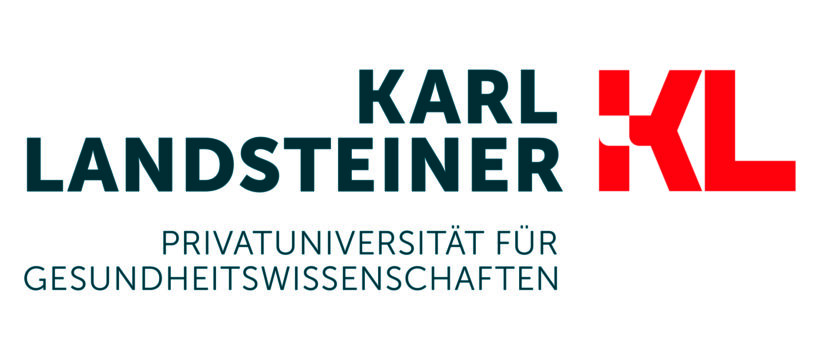Karl Landsteiner University of Health Sciences in Krems (Austria) investigates recovery time after reconstructive breast surgery of breast cancer patients
Krems, Austria, March 30th 2022 –Factors such as anemia and anticoagulants have more impact on hospitalization time after breast reconstruction than „common“ risk factors. That is the outcome of a study carried out by the Karl Landsteiner Private University of Health Sciences in Krems (KL Krems) published in the Journal of Clinical Medicine. The study analyzed the impact of different factors on postoperative blood loss and drainage fluid volume. These two factors can increase hospitalization time of patients after breast reconstruction following mastectomy due to breast cancer and delay subsequent cancer treatment. The findings of the study allow for an improved risk assessment and planning of reconstructive breast surgery to offer patients personalized and improved treatment.
Breast cancer surgeries often require partial or total mastectomy. To lessen the added psychological stress on cancer patients, reconstructive breast surgery is an integral part of oncological treatment. Fast wound healing after surgical breast reconstruction is critical to not delay the subsequent cancer treatment often indicated. Factors that influence the length of hospital stay (LOS) or wound healing are therefore particularly significant in cancer treatment. The study carried out by the Department of Plastic Surgery at the University Hospital of St. Poelten, KL Krems, belonging to the Breast Health Center of Central Lower Austria, has now identified risk factors not yet recognized.
Healing Reconstruction
The team of surgeons collected data of blood loss and drainage fluid volumes after breast reconstruction due to breast cancer. Both parameters are closely linked to the healing process and LOS where lower loss equals earlier patient discharge and early start of subsequent treatment. „We analyzed factors that might affect blood loss and drainage fluid volumes after surgery – but can be identified before the surgery,“ explains Dr Tonatiuh Flores, leading author of the published study and plastic surgeon at KL Krems. „These factors included age, body mass index and smoking status – factors that are known to have a strong impact on the course of disease.“ In addition, hemoglobin levels and possible antithrombotic prophylaxis were reviewed – two parameters that are particularly significant in oncological treatment.
The data evaluation of a total of 257 breast reconstructions in 195 patients produced surprising results. Post-doc Prof. Dr Konstantin Bergmeister PhD and senior author of the study explains that „the classic risk factors did not significantly influence postoperative blood loss and drainage fluid output. Hemoglobin levels and anticoagulant concentration, however, did.“ The evaluation showed a close relation between low hemoglobin values or anemia and fluid loss after reconstructive breast surgery. Prof. Klaus Schroegendorfer, head of the department and co-author expands: „Especially breast cancer patients often show perioperative anemia, caused by the frequently required neoadjuvant chemotherapy which can affect blood values, in particular hemoglobin.“
Anticoagulation & Loss
The team discovered similar findings regarding low molecular heparin used in cancer patients as antithrombotic prophylaxis. Patients with heparin showed a tendency of increased drainage fluid output after the surgery although the effect was not as strong as with perioperative anemia. The recommendations to be concluded from the study now published are clear to Dr Flores, Prof. Bergmeister and Prof. Schroegendorfer: To cut LOS and continue the necessary cancer treatment after reconstructive breast surgery in cancer patients as early as possible, patients should preoperatively be screened for anemia and administration of low molecular heparin should be adapted to the patients‘ risk. In correlation to the results, follow-up treatment can be improved, patients can be discharged earlier and cancer treatment can be continued. In general, the study confirms the research focus of KL Krems to scientifically substantiate clinical requirements in order to offer patients state-of-the-art and top-notch treatment.
Original Publication: Perioperative Risk Factors for Prolonged Blood Loss and Drainage Fluid Secretion after Breast Reconstruction. T. Flores, F. J. Jaklin, A. Rohrbacher, K. F. Schrögendorfer & K. D. Bergmeister. J. Clin. Med. 2022, 11, 808. https://doi.org/10.3390/jcm11030808 (Impaktfaktor 5,583)
About Karl Landsteiner University of Health Sciences
At Karl Landsteiner University of Health Sciences (KL) in Krems, the comprehensive approach to health and disease is a fundamental objective for research and teaching. With its Europe-wide recognized bachelor-master system, KL is a flexible educational institution that is tailored to the needs of students, the requirements of the labor market as well as the scientific challenges. Currently KL hosts about 600 students in the fields of medicine and psychology. The four university hospitals in Krems, St. Poelten, Tulln and Eggenburg ensure clinical teaching and research at the highest quality level. In research, KL focuses on interdisciplinary fields with high relevance to health policy – including medical technology, molecular oncology, mental health and neuroscience, as well as water quality and related health aspects. KL was founded in 2013 and accredited by the Austrian Agency for Quality Assurance and Accreditation (AQ Austria). www.kl.ac.at/en
Scientific Contact
Priv. Doz. Dr. Konstantin Bergmeister
Dept. of Plastic Surgery
University Hospital of St. Poelten
Karl Landsteiner University of Health Sciences
Dunantplatz 1
3100 St. Pölten / Austria
T +43 2742 9004 23670
E konstantin.bergmeister@stpoelten.lknoe.at
Karl Landsteiner University of Health Sciences
Ingrid Brunner
Communications, PR & Marketing
Dr.-Karl-Dorrek-Straße 30
3500 Krems / Austria
T +43 2732 72090 234
E ingrid.brunner@kl.ac.at
Copy Editing & Distribution
PR&D – Public Relations for Research & Education
Dr. Barbara Bauder
Kollersteig 68
3400 Klosterneuburg / Austria
T +43 664 1576350
E bauder@prd.at

